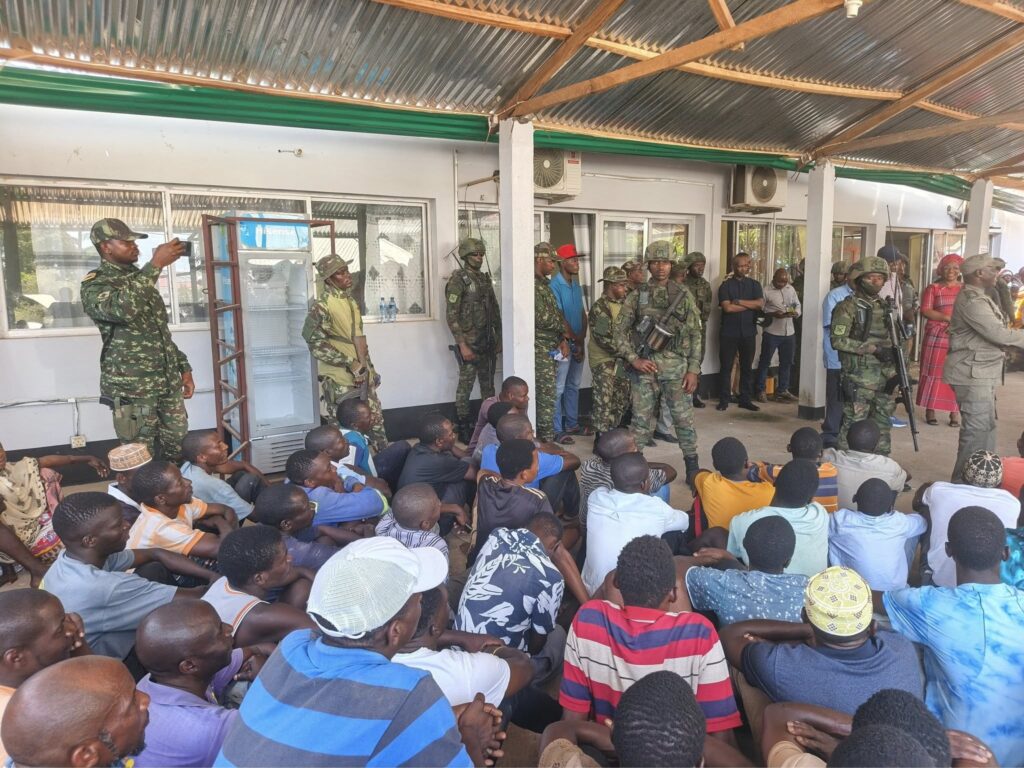Under the cover of darkness, a small group of Islamic State Mozambique (ISM) fighters targeted a neighborhood on the outskirts of Mocímboa da Praia in Cabo Delgado province on September 22.
They went from house to house, reportedly looking for specific individuals, before they beheaded four men from the Makonde ethnic group. It was one of about 30 attacks across the province in September that resulted in at least 39 civilian deaths and forced about 20,000 people to flee their homes.
In the lead-up to October 5, the anniversary of the insurgency’s first attack that targeted three police stations in Mocímboa da Praia in 2017, there were rumors of more attacks to come. Locals panicked, and many considered fleeing.
In the eight years since the first attack, Mozambique’s response has relied on state security forces supplemented by regional and foreign troops and two partnerships with private military companies. This military-focused strategy has so far failed to stem the tide of persistent violence.
Mozambique-based research consultant Borges Nhamirre calls it a “failed military strategy.”
“The primary cause of failure in combatting the insurgency is the absence of a holistic strategy that addresses the root causes of the conflict,” he wrote for the South Africa-based Institute for Security Studies on October 7. “While supported by Islamic State, the Cabo Delgado insurgency is driven largely by local factors, including social, political and economic exclusion by the central government in Maputo.”
ISM exploits local perceptions and grievances to recruit fighters and to justify their violent acts. Its propaganda seeks to portray the terror group as a protector of Muslim communities that feel oppressed by the Mozambican government, and aims for a religious appeal by noting the country’s leadership historically has been Christian.
“Identity issues such as ethnic tensions between the main local groups — the Makonde, Mwani and Macua — are also cited, particularly regarding unequal access to state resources,” Nhamirre wrote. “These ethnic disputes overlap with religious divides, as some groups are predominantly Muslim, while others are mainly Christian.”
Since the group’s first attack in 2017, ISM has killed 6,257 people, according to an October 1, 2025, report by the Armed Conflict Location and Event Data project (ACLED). The United Nations estimates that about 1.3 million Mozambicans have been internally displaced since the insurgency began, and more than 461,000 were still displaced as of March 2025.
In 2021, Rwanda sent about 1,000 Soldiers and police officers to support Mozambican forces, and a military mission formed by the Southern African Development Community deployed nearly 2,000 troops.
Three years later, the regional bloc withdrew its forces, claiming to have achieved its objective. More than 5,000 Rwandan troops remain, while Tanzania has a contingent of about 300 Soldiers in Cabo Delgado’s Nangade district to protect the border.
“If the country maintains its exclusively military approach, the insurgency could last for decades, like al-Shabaab and Boko Haram have in East and West Africa,” Nhamirre warned. “By framing the insurgency solely as international terrorism, Mozambique further restricts opportunities for negotiation.”
President Daniel Chapo recently suggested that his administration could explore ways to identify the group’s leadership and motivations as a means to facilitate peace talks.
“We are currently working on two solutions,” he said in a September 26 interview with Al Jazeera. “One is to continue to fight the terrorism on the ground with the support of the region and other partners.
“We can also pursue this path of dialogue and find a solution that could lead to the end of the insurgency. Dialogue is the basis for resolving any conflict.”

